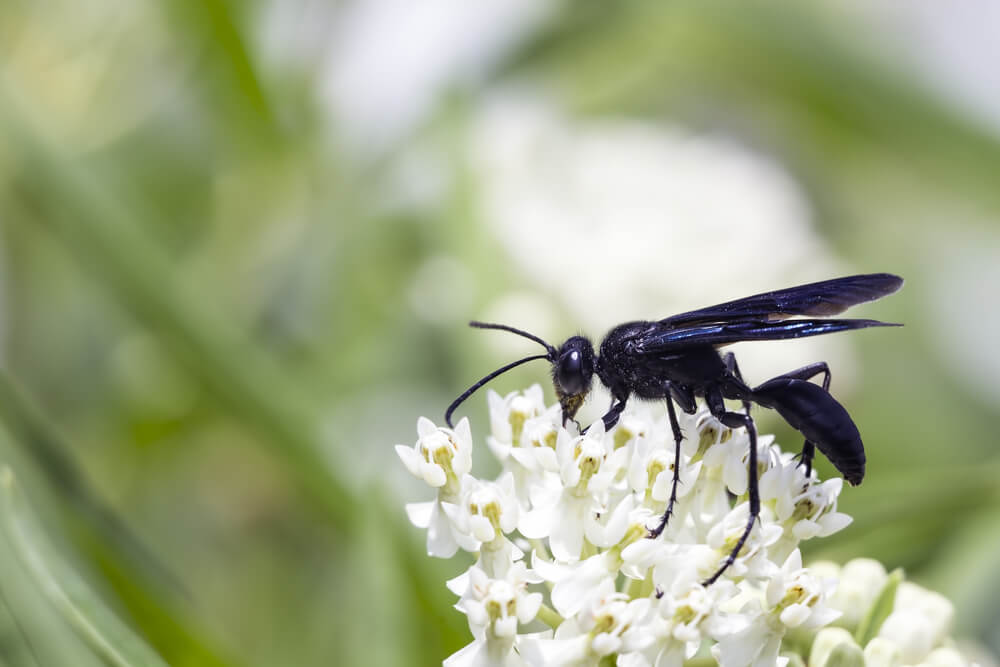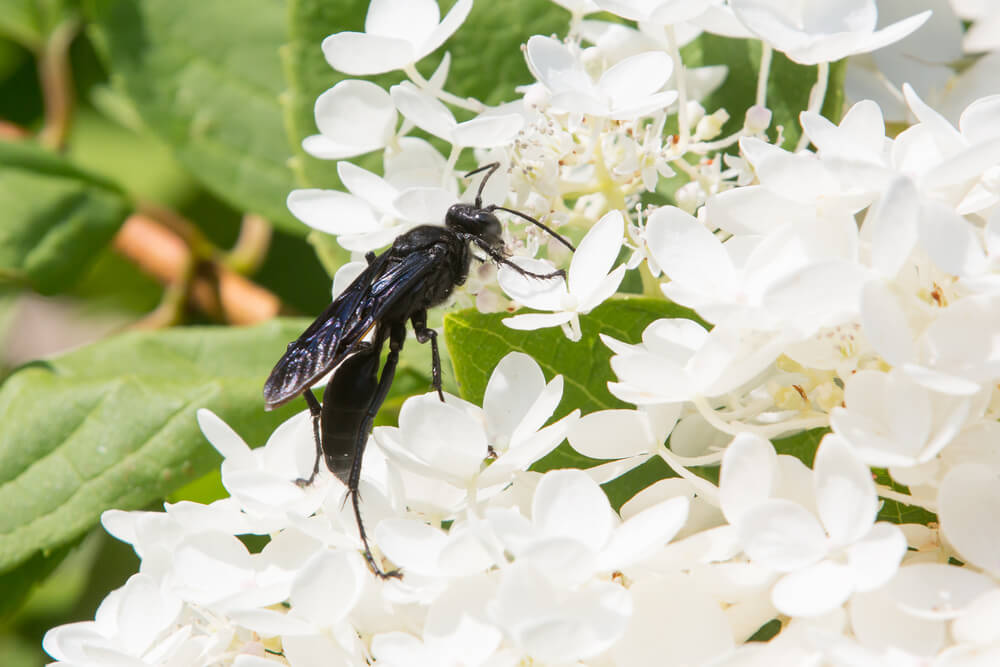
Black wasps, though intimidating, are vital as pollinators and natural pest controllers. However, they can become unwelcome in human spaces. This guide identifies black wasps, highlights their ecological benefits, addresses concerns about their threat to humans, and offers advice on safe removal and prevention strategies. Whether seeking coexistence or removal solutions, this overview provides the necessary insights.
Understanding Black Wasps (Identification and Behavior)
Black wasps, often misunderstood due to their intimidating appearance, play a crucial role in our ecosystem. Understanding how to identify and differentiate them can help alleviate unnecessary fear and promote coexistence. Black wasp identification typically involves recognizing their distinct features: they usually have a slender body, long wings, and a predominantly black coloration. Among the various types of black wasps, the mud dauber is one of the most common. These solitary wasps are known for constructing nests out of mud, which they attach to walls or ceilings.
The behavior of black wasps is generally non-aggressive towards humans. Unlike social wasps that defend their colonies aggressively, solitary wasps like the mud dauber tend to avoid confrontation unless provoked directly. Their primary focus is on hunting spiders or insects to provision their nests for their larvae. By understanding these behaviors and identifying characteristics, we can appreciate the beneficial role these creatures play in controlling pest populations while reducing unnecessary fear regarding their presence around our homes or gardens.
The Role of Black Wasps in the Ecosystem

Black wasps, often overlooked in the vast world of insects, play a crucial role in maintaining the balance of ecosystems. As pollinator insects, they contribute significantly to the reproduction of various plant species. By visiting flowers to feed on nectar, black wasps inadvertently transfer pollen from one bloom to another, facilitating plant fertilization and promoting biodiversity.
Beyond their role as pollinators, black wasps are also valuable allies in natural pest control. They are known for preying on other insect species that can be harmful to crops and gardens. By regulating the population of these pests, black wasps help reduce the need for chemical pesticides, thus supporting healthier ecosystems.
The benefits provided by black wasps underscore their importance in ecological networks. Their dual function as both pollinators and predators highlights how integral they are to sustaining environmental health and stability. Understanding and appreciating the ecosystem role of black wasps can lead to more informed conservation efforts that protect these beneficial insects and maintain ecological harmony.
Are Black Wasps Dangerous? Understanding Their Threat Level
When encountering black wasps, many people wonder about the potential danger they pose. Understanding their behavior and threat level is key to assessing any risks involved. Black wasps, such as the Great Black Wasp or the Blue Mud Dauber, are generally not aggressive towards humans. Unlike some other wasp species, they do not exhibit territorial behavior and are less likely to sting unless provoked.
The question of whether a black wasp sting is dangerous largely depends on individual reactions. For most people, a sting from a black wasp can cause mild discomfort, similar to that of a bee, sting resulting in pain, redness, and swelling at the site. However, for individuals with allergies to insect stings, there can be more severe reactions that require immediate medical attention.
To minimize encounters with these insects and ensure safety around them, it’s important to follow some basic black wasp safety tips. Avoid swatting at them or making sudden movements if one flies nearby; instead, remain calm and slowly distance yourself from their vicinity. If you find nests near your home or areas where children play frequently, consider contacting pest control professionals for safe removal.
In summary, while black wasps are not inherently aggressive towards humans and their stings are typically not dangerous for most individuals without allergies, exercising caution and respect around these creatures is always advisable for personal safety.
Effective Methods to Get Rid of Black Wasps from Your Property
Dealing with black wasps on your property can be an unsettling experience, but there are several effective methods to manage and eliminate them. If you’re looking for natural solutions, you might start by exploring how to eliminate black wasps naturally. One popular DIY black wasp removal method is the use of essential oils such as peppermint or clove oil, which can deter these insects when mixed with water and sprayed around their nesting areas. Another approach involves creating a homemade trap using sugar water or vinegar to lure and capture the wasps.
For those who prefer a more hands-off approach, professional pest control services for black wasps offer comprehensive solutions that ensure safety and effectiveness. These experts have access to specialized tools and treatments that are not only efficient but also environmentally conscious. Whether opting for DIY methods or seeking professional help, it’s important to assess the severity of the infestation and choose a method that aligns with your comfort level and environmental considerations.
Preventing Future Infestations
Preventing future infestations of black wasps requires a proactive approach that combines effective deterrents and long-term pest management strategies. The first step in keeping black wasps away for good is to understand their nesting habits and preferences. Black wasps typically build their nests in sheltered, undisturbed areas, so regularly inspecting your property for potential nesting sites is crucial. Seal any cracks or crevices in walls, eaves, or other structures where they might establish a nest.
Incorporating natural deterrents can also play a significant role in preventing black wasp nests. Essential oils such as peppermint or clove oil are known to be effective repellents when sprayed around common entry points and potential nesting sites. Additionally, maintaining a clean outdoor environment by removing food sources like open garbage cans and fallen fruit can reduce the attractiveness of your property to these pests.
For long-term pest management strategies, consider integrating professional pest control services that offer regular inspections and treatments tailored to your specific needs. These services can provide ongoing monitoring and apply environmentally friendly solutions that deter black wasps without harming beneficial insects. By combining these methods with consistent maintenance practices, you can significantly reduce the likelihood of future infestations while enjoying a wasp-free environment year-round.
